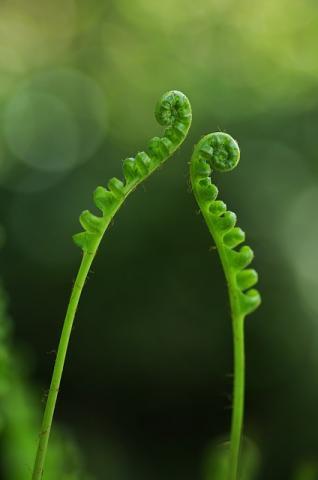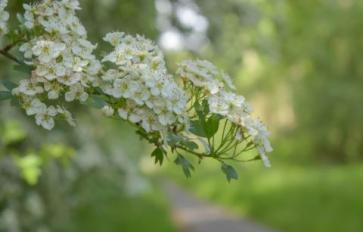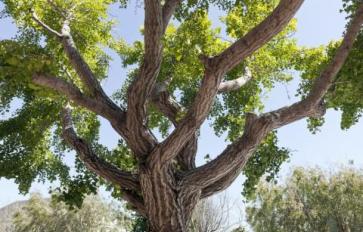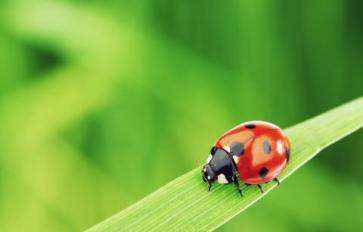
Plants! They are like the mysterious person in the room. The strong silent type that says nothing, and everything. They have no words and yet speak volumes to those who choose to stop and listen.
In the process of evolution, a well-known fact is that the more genes an organism has, the more evolved it is. The discovery that rice is more evolved than humans left biologist astounded. Rice carries about 60,000 gene types and we have an estimated 30,000 -40,000 genes. That is quite humbling.
Plants carry many personalities. They are intelligent. They develop elaborate traps and defense mechanisms against predator and prey alike. They are seductive, generous and nurturing, perceptive and conscious. Take, for example, the pea plant. It senses the environment around it. It then grows according to its perception of the environment. If there is any obstruction, the vines will grow around it.
Plants are not subject to our construct of time. They can survive for millennia. One such example is the Proteaceae/ King’s Holly. It can live for 43,000 years. Botanists are now fighting to save these magnificent trees from extinction. One Yew tree in Britain has been found to be 5000 years old.
Plants have consciousness and some are even sensitive to sound. The Desmodium gyrans or Codariocalyx motorius, known as the dancing plant, is quite interesting. The entire plant responds to music with elaborate movements. It reacts to sound, but not to touch. This plant prefers human tones as opposed to electronic resonance.
Plants have all of our senses -- and more -- without the organs associated with them. They can see, hear, touch, smell, and feel. They are also intuitive and telepathic; plants possess senses most of us lack or are yet to rediscover.
These are not the fantastical claims of people pursuing unscientific fables. There are many studies that back up the fact that plants have elaborate mechanisms. They defend themselves and protect their species. They sense the environment around them. They sleep, learn from experience, and socialize. Some of them walk. There are even trees that bleed. So what exactly are they saying to us?
But plants are talking to us too – we’re just unaware. But if we as humans can tune into the connection we have with the Earth and all it’s inhabitants, we just might learn something.
Let us now take a look at a few of the messages we have been able to receive from plant life. Then open your mind to the possibility of what else they are telling us that we are not yet able to hear.
1. Silence is Golden
You don’t have to make a lot of noise to communicate; noise is a distraction. As humans we tend to rely mostly on words to communicate and this is an insignificant part of imparting messages.
We tend to depend too much on the five senses, which are at the end of the day just one. That is the sense of touch. How much more do you think we could learn if only we were willing to explore higher possibilities?
Be still and know. Be still and feel the connection.
2. Have Respect For Every Living Thing
Treat us with respect; learn to adapt to the changing world and our new environment, they say. Stop limiting yourself to the physical reality. Modern science does not recognize phenomena that are not observable and quantifiable. But does that mean they do not exist?
All life is energy. Interesting enough, plants are ahead of us in this respect as they can sense energy better than we can.
3. Be in the Now
To communicate with a plant, you have to be in the moment, feel your feelings and connect with them. Plants communicate through feeling, with feeling. You cannot fool a plant, because they are more evolved than we are. They sense energy in a way that we are unable to.
Nature is bound to the present moment; it doesn’t know time as we do. It is free from the past and future and operates only in the present. It is not enslaved by thought.
As humans we tend to think ourselves into a box. Maybe it is time we observe the flora around us with more prudence. Take a leaf (pun intended) from their book and just be in the present. That is, in essence, all there is.
4. Get Back Into Nature
This world of artificial intelligence, flat screens and smartphones is an illusion. It separates us from reality. It blinds us to the magnificent earth that we have disconnected from.
We use everything around us to survive. Plants, animals, water, air. We need them all; take one from the equation and millions die.
How can we expect to survive, if we do not understand for ourselves the things we depend on to sustain life?
Get back to who you are, now. Before it is too late.
5. We Are in Danger and So Are You
Plant life around the world is under threat. Most species have been replaced with Genetically Modified Organisms, in the name of feeding the population. Have you ever wondered then why are so many people still starving? Our plant ancestors and teachers are becoming extinct. If they die, so do we. We need 7 – 8 trees to produce oxygen for just one of us. We need them to provide food, medicine, and energy, to find water, and to sustain life. If they die, so do we. What are you going to do about it?
6. Protect Each Other
Plants recognize their own species. When they are under attack they release signals to their fellow plants that they are in danger. The others then start emitting chemicals that deter their predators. These chemicals save the rest from destruction. Some, like parsley, even attract predatory insects to protect your garden from other predators.
We have become for the most part selfish, narcissistic and materialistic. The norm is competition as opposed to ensuring the survival of our own, and those dependent on us. We seek to destroy instead.
We are operating from ego and more apt to living the law of the jungle. We could learn from the flora around us. They seek to build their own kind and protect them as opposed to seeing them as competition.
7. Play Your Part (And Be Open to What That Is)
Remember who we are and our place in this world. Remember what it’s like to be a part of this thing called nature, and living in harmony with all.
What we see is just a minuscule representation of all that is going on around us. Wake up, be still, listen and you will begin to see and be amazed.
To be open to an answer means to free yourself from labels and preconceived notions. To forget all you think you know and understand. It is realizing that you don’t actually know anything at all.
Being open to the answers means to accept that you are but a mere reflection of something greater. You are but one expression of a larger picture. Being open to the answer means you accept that you are a mere piece in a puzzle and do not have all the answers.
To be open to the answers is in essence absolving oneself of ego. It is approaching life with abject humility. It is expressing your aspect of the all in the best way and finding your home in this world. We then return to the all having given what we were here to give in the first place.
8. Have Patience and Faith
You don’t just plant a seed this morning and by sundown have a full-grown plant. It takes time, and for quite awhile nothing happens. It seems as if your effort was for naught. Then one day you see something sprouting and fighting its way up through the soil -- the first signs that your labor was not in vain.
If you are an impatient person who lacks faith, you cannot be a good gardener and connect with plants. They are like children, your children. You take them from seed to tree in a matter of time. Then years to adulthood and the fruit it bears.
All things in life take time. There is an incubation period. As the seedling grows into a tree, it teaches us what a little patience and faith can do in our lives. It affects everything we set out to do, acquire and accomplish. Plant the seed, water it, nurture it and watch it grow to the best it can be – literally and figuratively!
9. Live Consciously
We have forgotten our quintessential self and have been living on autopilot for a long time. We operate from memory and it becomes difficult for people to escape the hamster wheel. We live 95 percent of our lives from the subconscious mind and we are rarely ever cognizant of the world around us. Every other living organism seems to be aware except us. This is the reason we are unable to listen to and even begin to comprehend what the plants are telling us.
Take, for example, driving: we get in our cars. Start the engine and go to work. We do this over and over and it becomes automatic. This is operating from the subconscious. Our brains only become involved when we do something different. This forces our brains back into action. How many things are you doing without awareness?
Some of us are mindful and see messages. But imagine being your conscious self -- what do you think your garden would be telling you? The answers may astound you, if you become sentient and listen.
Plants speak. But are we listening?
To be able to hear what plants are saying to us, we cannot approach it from an intellectual level and standpoint. This is quantifiable and limited as well as subject to our own biases.
To truly listen to the plants around us, we must understand that the universe is us, and we are the universe. We are not separate and distinct. We are all expressions of the all. The plant may be in the physical form of a tree or flower but it is just one expression of the all. The body we are in is another expression of the all.
Plants are more evolved than us, perhaps because they are still ‘aware’ of the all operating within us. When we remember this we will be free.
We are not superior. We are beings sharing a planet with other organisms. They would survive without our presence but how long could we live without theirs?
Sources:
http://phys.org/news/2009-06-sagebrush-engage-self-recognition-danger.html
http://www.livescience.com/5102-plants-painkillers.html
http://www.sciencefocus.com/qa/how-many-trees-are-needed-provide-enough-oxygen-one-person
http://www.bbc.com/news/10598926
http://www.naturalnavigator.com/find-your-way-using/plants
http://www.bbc.com/travel/story/20151207-ecuadors-mysterious-walking-trees








